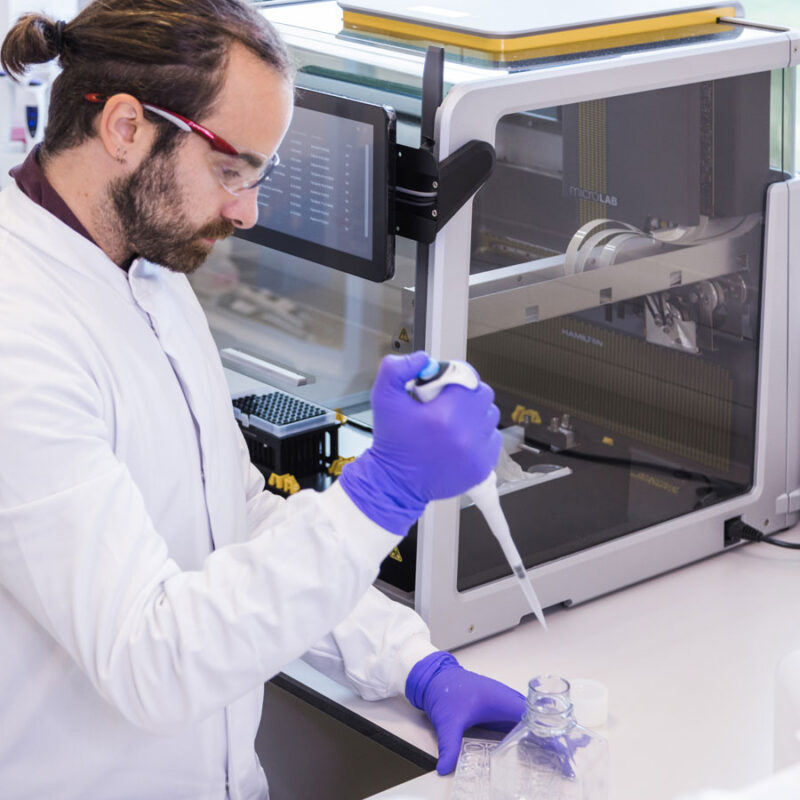Why Abzena?
Trust our focused approach.
Although the potential for immunogenicity of therapeutic antibodies and proteins has been significantly reduced through the application of protein engineering technologies, clinical data shows that many biopharmaceuticals still induce an immune response in patients. Immunogenicity therefore remains a concern for companies developing new products and for the regulatory agencies asked to approve their use.
Our next-generation EpiScreen® 2.0 platform is Abzena’s innovative answer to these challenges. We utilize flow cytometry technology for precise, multi-dimensional immunogenicity assays. We provide a comprehensive suite of bioassays that predict and evaluate potential risks of preclinical immunogenicity in protein, antibody, and gene therapy therapeutics.

When it comes time to evaluate the immunogenic risk of your biopharmaceutical program, our newly enhanced EpiScreen® 2.0 platform offers a comprehensive suite of assays that can predict, and evaluate potential risks of preclinical immunogenicity in protein, antibody, and gene therapy therapeutics.
To learn more and access our info sheet click the button below.
EpiScreen® 2.0 encompasses a package of assays that allow an accurate and sensitive way to assess the potential immunogenicity of proteins and antibodies ex vivo using a variety of methods such as measuring CD4+ T cell responses, the primary drivers of memory-based immunogenicity or evaluating MHC Class II peptide presentation.
Immunogenicity refers to the ability of a substance, such as a therapeutic protein, to provoke an immune response. In the context of biologics, this response can impact both the efficacy and safety of the treatment.
If a drug is immunogenic, anti-drug antibodies can be induced that bind to the drug and alter its efficacy and pharmacokinetic profile. In some cases, an autoimmune-like responses could be triggered. Immunogenicity is therefore, a key concern in developing biologics. Anticipating and mitigating these responses early in the drug development process can significantly improve the likelihood of clinical success and patient safety, ensuring a smoother pathway to regulatory approval and market acceptance.
Regulatory agencies like the FDA and EMA require comprehensive immunogenicity risk assessments for the approval of biologics.
ADCs are targeted cancer therapies that link potent anti-cancer agents or other functional molecules to antibodies. As with any biologic-based therapeutic, these can be immunogenic, leading to the production of antibody-drug antigens (ADAs) that can reduce efficacy or cause adverse reactions.
In silico platforms can sometimes be overly predictive. In vitro assays are crucial for evaluating the potential immunogenicity of biologics by providing real world empirical data to inform the drug development process in a flexible way.
A robust immunogenicity risk assessment approach should provide the development of phase-appropriate assays for potency, efficacy, and safety, ensuring that you have the necessary tools to make informed decisions. Abzena’s comprehensive suite of services includes target validation, mode of action analysis, and immunogenicity and safety assessment, among others.

We enable you to bring life-changing medicines to patients in need faster. Let’s talk and move medicine forward.